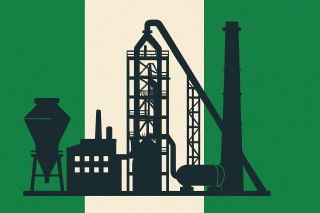A report by the European Parliament (EP) on the Construction Products Regulation (CPR) calls for an ambitious revision of the regulation. The EP is moving towards clarifying what can be defined as green construction products and has now directly integrated EU environmental policies into the construction sector legislation.
The EP has approved a report calling for minimum performance requirements that construction products will need to meet before they are put on the EU market. The resolution was adopted with 686 votes in favour (four against, five abstentions).
Taking matters further
Furthermore, MEPs are calling on the European Commission to enhance the current CPR regulation with requirements for environment, health, and safety. These stricter requirements are intended to make construction products and buildings more sustainable.
However, there are calls for more action to be taken. Michael Neaves, programme manager of the Environmental Coalition on Standards (ECOS), said: "The European Commission must raise the bar for construction products, and exclude the worst performers from the market. A standards-only approach will not guarantee progress, and stronger policy tools are needed to achieve this. Introducing a framework for direct EU information and performance requirements for all aspects is the only way to meet the EU climate law targets and give Europe a first-mover advantage."
Meanwhile, Gonzalo Sánchez, policy officer at EEB, welcomed the EP's positive step on green construction products: "EU construction product policy has great potential to create a market of products that help make our built environment more sustainable, supported by strong market surveillance and delivering zero carbon emissions in the construction sector to meet the EU's 2050 environmental target. The market is currently dominated by highly impactful products, and direct integration of EU environmental policies into construction sector legislation is long overdue, so this is an important step towards policy in support of a sustainable built environment."
The Green Deal
The European Green Deal, established in December 2019, is the European Commission's programme to provide steps towards the green transition. The Deal aims to make Europe the first carbon-neutral continent and was followed by the Circular Economy Action Plan.
What has still to be agreed is what construction products are going to make the green transition possible and whether some building materials should be phased out.
What ECOS is calling for?
ECOS is advocating EU-wide rules that incentivise and enforce better maintenance, repair, reuse and recycling wherever and whenever possible. It stresses that while the Sustainable Product Policy Framework will implement the European Green Deal, revising the current CPR policy framework remains essential to overcoming sector-specific challenges to environmental sustainability. ECOS calls for a review of the intermediary and end-products used for construction.
The revised CPR could see mandatory performance requirements for all products over the whole product lifecycle, including all embodied environmental impacts. Products could be regulated with an approach similar to the Ecodesign Directive. A product passport would improve transparency and data sharing over the value chain, while a comprehensive and effective independent performance assessment of construction products would ensure effective market surveillance.
The circular economy has been slow to develop. To advance this practice, ECOS recommends the CPR framework should establish the requirements needed to reduce the environmental footprint of construction products and foster material efficiency. Such criteria can then help market participants make the best use of locally available raw materials, including secondary resources such as waste streams, as well as materials from sustainably managed sources.
ECOS is striving for the establishment of a minimum environmental requirement for construction products, including CO2 emissions for building products such as cement and steel. These environmental requirements would need to be aligned with and deliver European objectives, including the EU2030 climate target, ETS benchmark values, Industrial Environmental Directive (IED) emission limit values and also chemical legislation.
It will also be important to reduce virgin raw material use in future construction products. ECOS suggests ambitious minimum requirements for use of recycled content and secondary raw material in all construction products. It would also consider the environmental impact of the transport of raw materials.
In addition, ECOS would like to see a resource efficiency ratio developed to outline the minimum resource efficiency requirements within each building product part of the construction, based on the environmental footprint, derived from the quantity of material used and measured against key functionality requirements. All construction products should also look to extend product service life and reduce wastage.
Construction and demolition waste remains the largest waste stream in the EU. Thefore, it would be advisable to establish take-back obligations for unused products, as well as a scheme for extended producer responsibility and for financial incentives for producers to dedicate more focus to the inner loops of the circular economy.
